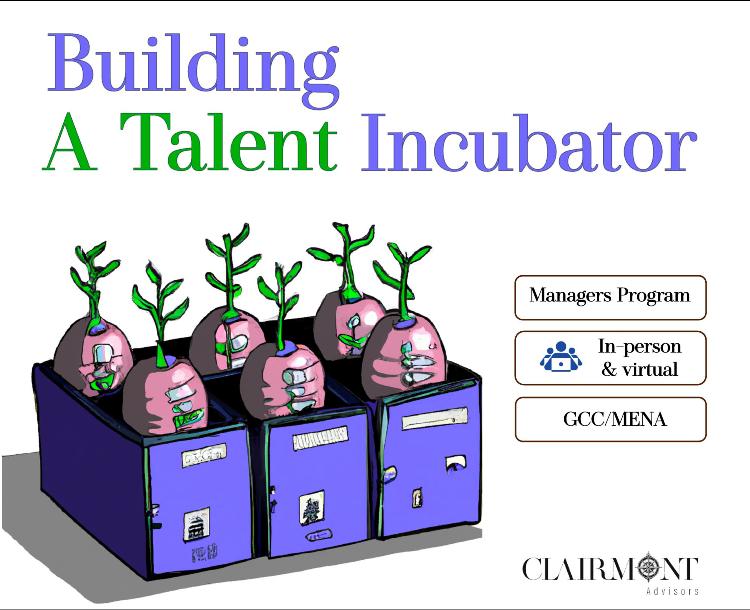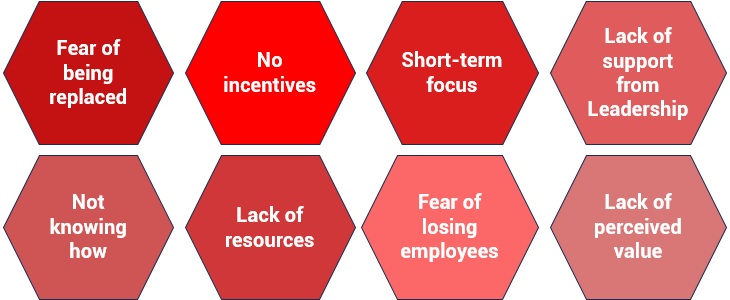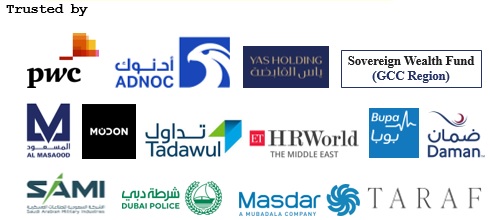How to engage your firms most powerful development tool!
When successful individuals are asked about their own development, they often recall a boss that played an important role in their development.
As a result talent team should spend time working with managers to leverage not only their knowledge but also their access to employees. This is not meant to discount the importance of programs that talent team works to provide to company’s employees, in fact the effectiveness of organization’s talent initiatives will rise if management team is committed to developing its employees.
Imagine the exponential impact of having a management team dedicated to the development of their staff. We often expect them to do so and to support the organization’s talent initiatives, however, we fall short in working with managers to explain why and how to do so.
Implementation has benefits, but there is also an organizational risk if managers fail to train their team.
We need to expect more from our management teams.
The program is designed to help managers take responsibility to build their own talent incubators. In the course not only we go over how managers can develop their team members but also why it is in their best interest to do so. Through this program managers will start to view themselves as talent developers, a critical aspect as it changes their Default Mindset and influences their behavior.
Listen to the program summary, challenges that we address in this program, and benefits of for both organization and managers in participating in this course.
To receive the program brochure with detailed course outlines and pricing email us at shad@clairmontdevelopment.com
What happens when managers are not actively developing their team?
Early on in my career I was able to witness the power that managers had in developing their teams. In a weekly meeting, a peer who had just participated in a training program on how to increase the effectiveness of team meetings share his new knowledge, manager looked disinterested and once the direct report finished, he said, “That’s not going to work here!”. With that one sentence not only he wasted the time the employee spend at the training, but any future training that his staff went to afterward.
In many cases, managers’ lack of engagement in team building not only impacts how they develop others, but also serves as a barrier to institutional effort if they are not passionate about or committed to improve their team.

According to a recent Gallup, Inc. survey of more than a million workers, a lousy boss or immediate supervisor is the primary cause of resignation. According to research, 75% of employees who voluntarily quit their employment do so for reasons related to their managers rather than the job itself, the firm, or the position. If your organization is facing turn over issues, this is one way to address it.

Why do managers so often lack motivation in developing their team?
There are a lot of challenges in having managers focus on developing their team. While some are institutional and structural the others might be individual issues.
Despite all these challenges, the benefits are too large to not address!
Why do managers so often lack motivation in developing their team?
There are a lot of challenges in having managers focus on developing their team. While some are institutional and structural the others might be individual issues.
Despite all these challenges, the benefits are too large to not address!

Managers already have a lot on their plate, so when HR asking them to spend more time focusing on the development of their team it often could be met with some resistance. That is why it is important to focus on the benefits of building team, not only organizational benefits but also manager’s personal perspective. It’s more than telling the managers that they should but work with them to change their management philosophy and how they view their responsibilities.
Why are some companies known for incubating talent: Intentionality




What are the benefits of managers focusing on developing their team?
Organizational Benefits
Increased productivity: Employees who are well-trained and developed are more productive, as they have the skills and knowledge needed to perform their jobs effectively. This can lead to increased efficiency and better overall performance.
Innovation and growth: When employees are encouraged to develop their skills and knowledge, they are more likely to come up with new ideas and approaches that can help the organization grow and innovate.
Employee retention: When employees are given opportunities to develop their skills and advance in their careers, they are more likely to stay with the organization. This can help reduce turnover and the associated costs of recruitment and training.
Succession planning: Developing employees is an important part of succession planning, as it ensures that there are skilled and knowledgeable employees ready to take on leadership roles as they become available.
Managers’ Personal Benefits
Job security: Managers that can develop talent become highly desired employees. They possess a skill that sets them apart from other managers.
Increased productivity: As managers focus on development, their staff will be able to take on more demanding responsibilities resulting gained team performance.
Improved morale: When employees feel that their managers are invested in their development, they are more likely to be engaged and motivated at work.
Reward/Recognition: Organizations reward staff that bring value to the organization. This depends on the firm’s practices and how they view/prioritize this skill.
What is an Incubator?
In the business world we often think of incubators as it relates to start-ups and early-stage businesses. In that context, the incubator provides the support and resources that the young companies need in order to succeed. Similarly, shadow talent systems leverage informal pathways within organizations to foster development and growth. When we talk about talent incubators, we are referring to how managers can act deliberately to create an environment where their direct reports are encouraged to develop.

Before you are a leader, success is all about growing yourself. When you become a leader, success is all about growing others.
Jack Welch
OVERVIEW:
A critical element of being an effective manager is developing the members of the team. Being known as a “Talent Incubator” has both personal and organizational benefits. By deliberately developing team, it provides organizations with high-caliber talents that can be allocated to meet the dynamic needs and demands in UAE, KSA and other GCC countries.
OBJECTIVE:
Upon completing this course, managers will have the skills and knowledge needed to develop high-performing employees aligned with organizational objectives. They will be able to foster a culture of trust, collaboration, and continuous improvement in members of their teams, leading to increased organizational success.
What are the Building Blocks of a Talent Incubator?

What are the Building Blocks of a Talent Incubator?
To receive a brochure with detailed course cover and pricing email us at
shad@clairmontdevelopment.com
Course Logistics
Format: The training program will consist of a mix of lectures, case studies, group discussions, role-playing exercises, and reflective activities. Participants will have the opportunity to apply the skills learned in the course through real-life scenarios and will develop an action plan to implement these skills in their own teams.
Duration: The course will be conducted over a period of 2-3 days, depending on the needs of the organization and the number of participants.
Target Audience: This course is designed for managers who are responsible for developing and managing teams within their organization.
Workshop Delivery
Deliverable: Virtual
4 ½ day program
6 ½ day program
Deliverable: In-Person
2-day program
3-day program
 Abu Dhabi Investment Authority (ADIA), UAE
Abu Dhabi Investment Authority (ADIA), UAE
Head of Learning and National Development
– Lead organizational learning initiatives across the firm
– In charge of local talent development from graduate development through senior leadership programs
 Pacific Investment Management Co (PIMCO), USA
Pacific Investment Management Co (PIMCO), USA
Vice President – Learning & Development
– Lead global learning initiatives for staff of 2,600
– Focus on Portfolio Management, Product Management, Client Management, and Business Support
Associate – Business Development
 UBS, USA
UBS, USA
Advisor
– Focus on Municipals Bonds, Deep Value Equities, and Absolute Return Strategies
 University of Pennsylvania, USA
University of Pennsylvania, USA
Ranked #3 School of Education in the world, 2024
- Doctorate of Education, 2024
- Masters of Education, 2022
Pepperdine University, USA
- MBA
Vanguard University, USA
- Bachelors – Business
Testimonials
“Shad was able to bring to the classroom his many years of experience which made the training impactful”
“Shad has a reputation for diagnosing learning needs and utilizing his deep financial services background and knowledge to deliver customized solutions that accelerate business performance.”
“I truly enjoyed our training sessions, each time I felt like I learned something new and valuable”
“Shad has a great delivery style and is so easy to work with, definitely goes out of his way to help and offer guidance”
Frequently Asked Questions (FAQ)
To find out more details on pricing and detailed course outline email us: info@clairmontdevelopment.com
Got any questions about the program? Chat with us in WhatsApp +971568319782















Leave A Comment